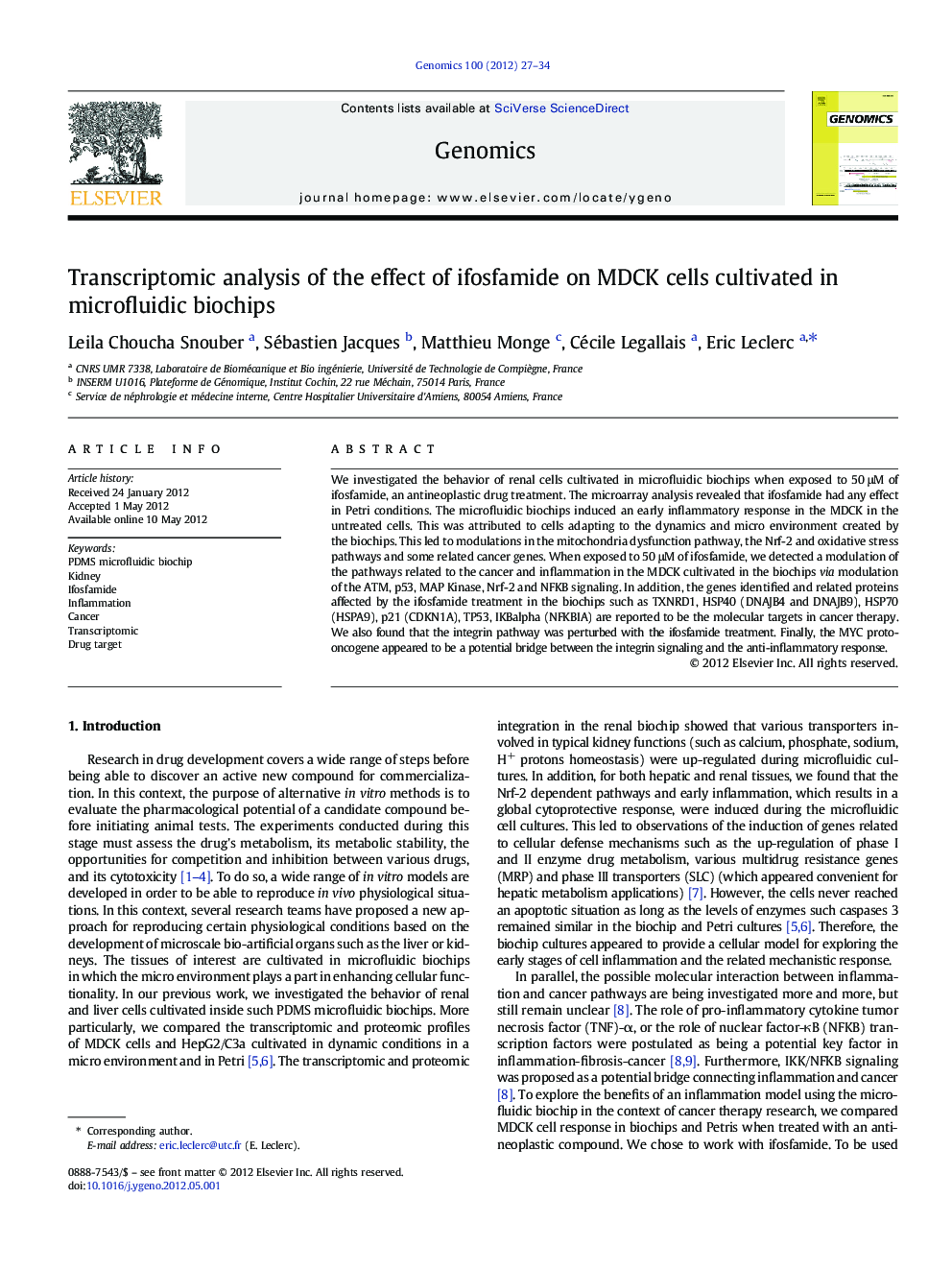| Article ID | Journal | Published Year | Pages | File Type |
|---|---|---|---|---|
| 2820979 | Genomics | 2012 | 8 Pages |
We investigated the behavior of renal cells cultivated in microfluidic biochips when exposed to 50 μM of ifosfamide, an antineoplastic drug treatment. The microarray analysis revealed that ifosfamide had any effect in Petri conditions. The microfluidic biochips induced an early inflammatory response in the MDCK in the untreated cells. This was attributed to cells adapting to the dynamics and micro environment created by the biochips. This led to modulations in the mitochondria dysfunction pathway, the Nrf-2 and oxidative stress pathways and some related cancer genes. When exposed to 50 μM of ifosfamide, we detected a modulation of the pathways related to the cancer and inflammation in the MDCK cultivated in the biochips via modulation of the ATM, p53, MAP Kinase, Nrf-2 and NFKB signaling. In addition, the genes identified and related proteins affected by the ifosfamide treatment in the biochips such as TXNRD1, HSP40 (DNAJB4 and DNAJB9), HSP70 (HSPA9), p21 (CDKN1A), TP53, IKBalpha (NFKBIA) are reported to be the molecular targets in cancer therapy. We also found that the integrin pathway was perturbed with the ifosfamide treatment. Finally, the MYC proto-oncogene appeared to be a potential bridge between the integrin signaling and the anti-inflammatory response.
► We develop a microfluidic biochip for renal tissue model. ► Microfluidic biochip culture enhance the cellular cytoprotective mechanism. ► We investigate the transcriptome in Petri and biochips after ifosfamide treatment. ► Petri cultures are not sensitive to ifosfamide treatment. ► In vitro biochips reveal cancer molecular targets of ifosfamide as in vivo reports.
